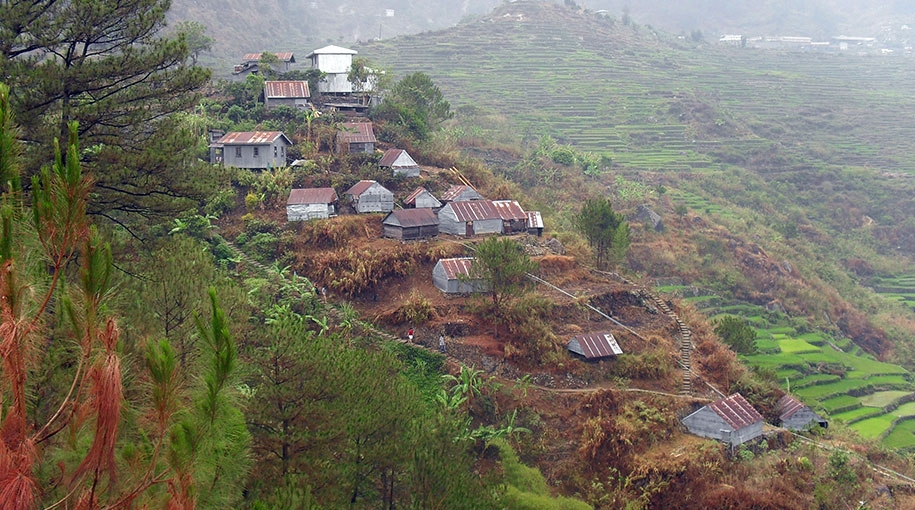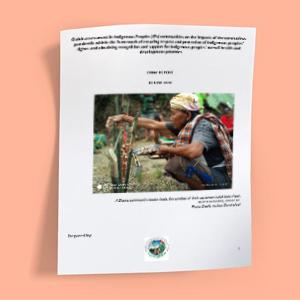Quick assessment in Indigenous Peoples (IPs) communities on the impacts of the coronavirus pandemic within the framework of ensuring respect and protection of indigenous peoples' rights and obtaining recognition and support for indigenous peoples' overall health and development priorities [7196475]
01-30 June 2020
Background
Given the unprecedented challenges that COVID-19 poses, the World Bank Group (IBRD/IFC/MIGA) expects to deploy up to $160 billion over the next 15 months to help countries protect the poor and vulnerable, support businesses, and bolster economic recovery. As of April 2, 2020, the World Bank has supported the first 25 operations (many of them grants), totaling $1.9 billion, to address the health challenges of COVID-19. Another 30+ operations have been approved or are under preparation. Many of these are health projects supporting efforts to monitor the spread of the virus, obtain medical equipment and supplies, set up quarantine measures, including in hospitals and clinics, train medical personnel and undertake outreach/communications about the virus, especially to vulnerable groups.Most of the health projects are commencing activities in urban areas and then reaching out to the rural areas. Where applicable, they include the requirements for applying the measures set out in the World Bank’s Environmental and Social Standard on Indigenous Peoples (ESS 7).
In addition, there are other avenues within the World Bank currently being explored on how best to directly support indigenous communities address the impacts of COVID 19. The World Bank indigenous peoples Focal Points are consulting IP organizations and networks in Africa, Asia and LAC on the impact of COVID-19. Some of the themes expressed by the IPs are:
- lack of accurate information on COVID-19 to IPs is a major issue; the level of misinformation communicated to IPs are creating panic in many communities
- lack of accurate information on COVID-19 to IPs is a big issue, the level of misinformation communicated to IPs are creating panic across the board
- lack of access to medical services including testing, personal protective equipment (PPE) such as masks, soap, alcohol, lack of water
- having to manage multiple; forest fires, cyclones
- lack of medical services to those infected—IPs are facing discrimination and not getting access to medical treatment
- lack of proximity to health care services, especially those IPs living in remote rural areas
- lack of data disaggregation by ethnicity by government/health facilities therefore cannot track IPs with the virus and the level of infection
- no testing in IP communities
Download report
Project Objective
The objective of this activity is to conduct an assessment and consultation with Indigenous communities in four (4) countries in Asia—Nepal, Thailand, Indonesia, Philippines—on the impacts of COVID-19 and its related mitigation measures as well as identify their priorities for relief and recovery support for livelihoods, food security and health.
The results will be used both to inform the Bank’s COVID-19 economic recovery operations, as well as to produce a public good that IPs could leverage to mobilize informed support for their communities.




